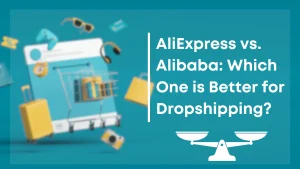Emerging technologies are largely responsible for the ongoing evolution of the eCommerce sector. Thanks to these technologies, businesses can now offer their consumers more customized and interesting purchasing experiences while also increasing productivity and streamlining processes.

The following are some of the most cutting-edge new technologies that are influencing eCommerce:
1. Artificial Intelligence (AI)
Numerous techniques are being employed to customize the eCommerce experience with AI. AI, for instance, may be used to provide product recommendations to clients based on their browsing and prior purchase histories, among other data. AI is also useful for creating chatbots that can assist and respond to queries from customers.
2. Augmented Reality (AR)
Customers may virtually try on clothing, furniture, and other things thanks to augmented reality. This can lower return rates and assist customers in making better-informed purchases.
3. VR stands for Virtual Reality.
Immersive retail experiences are being created using virtual reality. Customers, for example, can utilize VR to explore virtual showrooms or take a virtual tour of a product.
4. Blockchain
Blockchain technology is being utilized to make eCommerce transactions more safe and transparent. Blockchain may also be used to track the origins of items, which can aid in the fight against fraud.
5. Internet of Things (IoT)
The Internet of Things (IoT) is being used to link physical items to the internet. This may be used to monitor product conditions, maintain inventories, and even personalize product suggestions.
6. Voice Search
Voice search is getting more popular, and eCommerce companies are responding by making their websites and applications voice-searchable. Customers will be able to discover the things they are seeking for more easily, especially if they are on the go.
7. Chatbots
Customer service and assistance are being provided via chatbots. Chatbots may answer client concerns, fix difficulties, and even promote products.
8. Social Business
The use of social media platforms to sell goods and services is known as social commerce. Social commerce is growing in popularity because it enables businesses to reach a larger audience and connect with customers on a more personal way.
9. Headless Commerce
Headless commerce is a revolutionary approach to eCommerce that separates the front-end of an eCommerce business from the back-end. This allows businesses to modify the appearance and feel of their store without having to make modifications to the underlying technology.
How Businesses Can Use Emerging Technologies to Succeed in eCommerce
Businesses may do a variety of things to successfully employ developing technology in eCommerce. Here are some pointers:
- Determine which technologies are appropriate for your company. Not all developing technologies are appropriate for every business. It is critical to discover the technologies that can assist you in meeting your unique company objectives.
- Invest on education and training. Your personnel must be trained to use the new technology that you are introducing.
- Experiment and test. Don’t be hesitant to try out new technology. The greatest approach to discover what works for your company is to put it to the test.
- Please be patient. It takes time to see the benefits of new technology. Don’t be disheartened if you don’t get results right away.
Here are some further comments on the influence of developing technology on eCommerce:

Personalized Shopping Experiences
AI and machine learning are helping businesses to offer more tailored shopping experiences for their customers. This covers stuff like:
- Product recommendations: AI algorithms may examine consumer data to propose products that are likely to be of interest to each particular customer.
- Targeted marketing: Businesses may utilize AI to tailor their marketing campaigns to specific client categories. This can assist to improve the efficacy of their marketing efforts and their ROI.
- Dynamic pricing: AI may be used to dynamically alter product prices depending on a range of criteria including as supply and demand, consumer behavior, and rival pricing.
Customer Service Improvements
Chatbots, virtual assistants, and other AI-powered technologies are being utilized to deliver more efficient and effective customer support. This covers stuff like:
- Answering client inquiries: Chatbots can answer routine consumer questions 24 hours a day, seven days a week, freeing up human customer care representatives to handle more difficult issues.
- Resolving customer difficulties: Chatbots may also be used to address some client concerns, such as processing returns or granting refunds.
- Product information: Chatbots may give extensive product information to consumers, such as specs, reviews, and availability.
Operations Have Been Simplified
Emerging technologies are also being utilized to improve the efficiency of eCommerce operations. This contains items such as:
- Inventory management: Artificial intelligence (AI) may be used to optimize inventory levels and decrease the risk of stockouts or overstocking.
- Order fulfillment: Artificial intelligence (AI) may be used to automate order fulfillment activities including selecting, packaging, and shipping.
- Fraud detection: Artificial intelligence may be used to detect fraudulent transactions like credit card fraud or identity theft.
Emerging Technologies in the Future of eCommerce
In the future, we may expect to see even more creative use of developing technology in eCommerce. For example, we may observe the use of:
- Augmented reality (AR) and virtual reality (VR) will be used to offer ever more immersive shopping experiences.
- Blockchain will be used to develop more secure and transparent supply networks.
- Voice search utilizes natural language processing (NLP) to make it even easier for customers to discover the things they want.

Conclusion
New technologies are having a significant influence on the eCommerce business. Businesses may use these technologies to provide more personalized and engaging shopping experiences for their consumers, as well as to streamline processes and enhance productivity. If you haven’t already started adopting new technology in your eCommerce firm, now is the moment.
In addition to the ideas given above, I would advise firms to focus on providing a consistent client experience across all channels. This implies that whether they purchase on your website, mobile app, or at your physical store, clients should have a good experience. Businesses should also prioritize establishing trust with their clients. This may be accomplished by being open and honest about your prices and policies, as well as delivering good customer service.
Businesses may employ developing technology to prosper in the ever-changing eCommerce market by following these guidelines.





